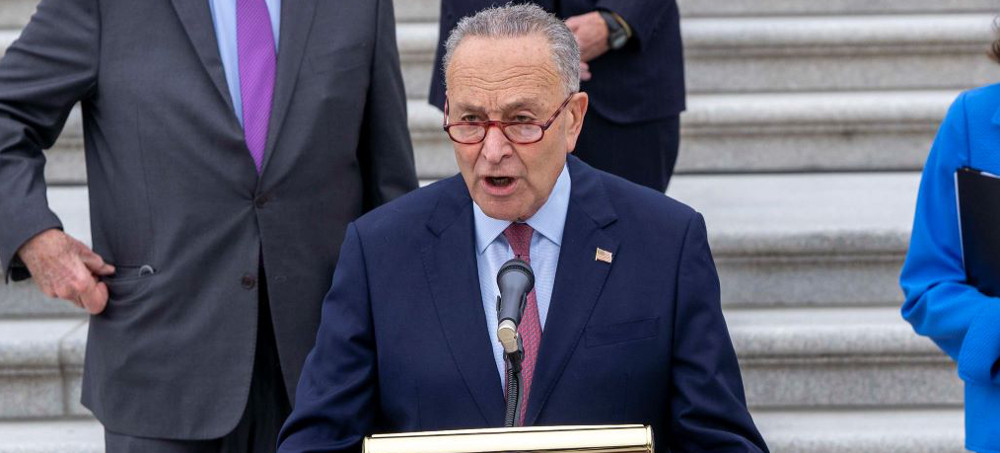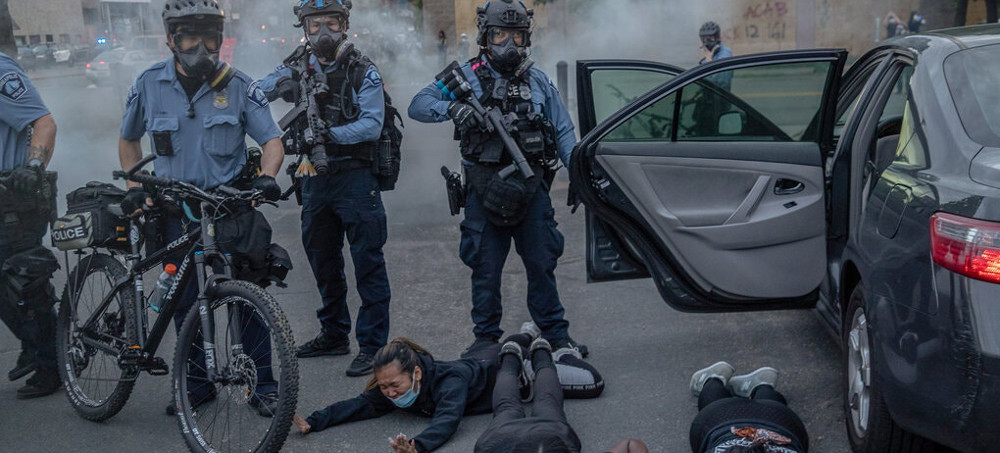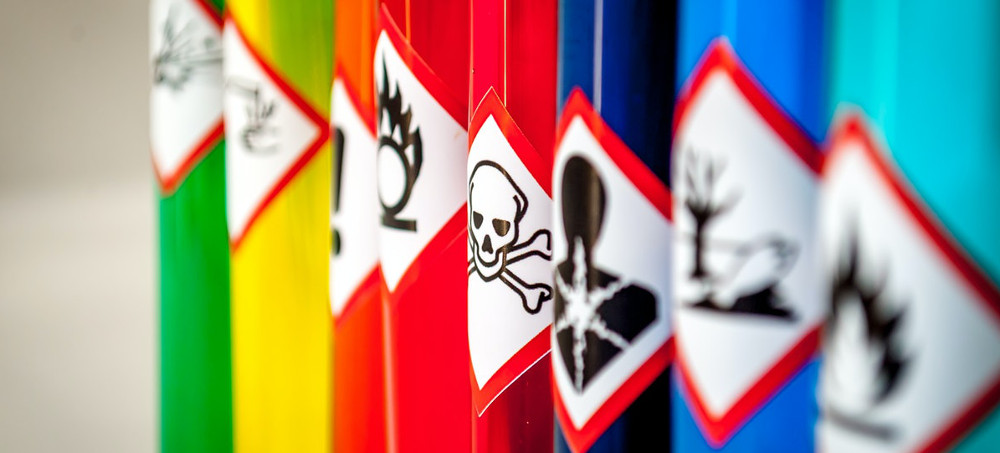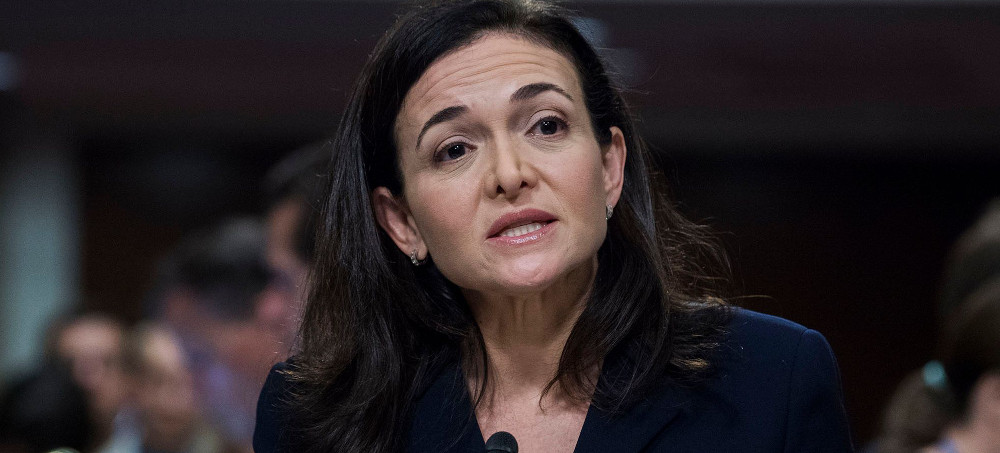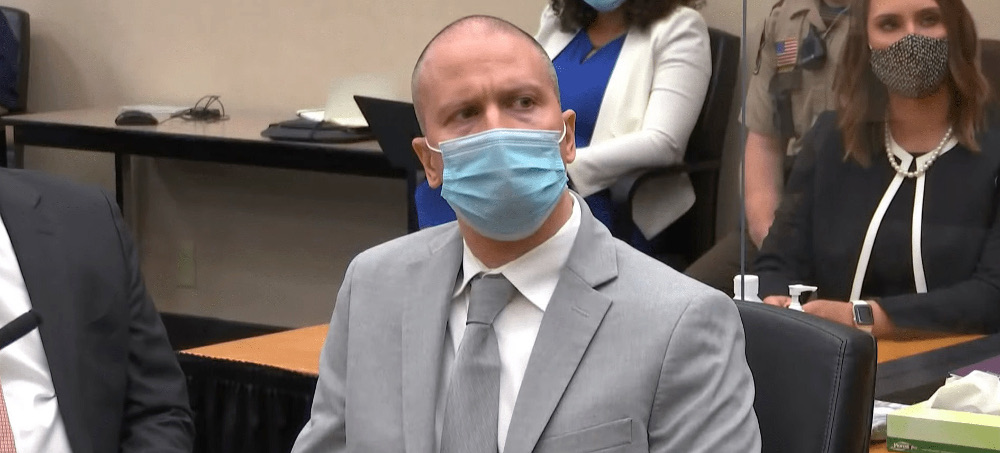Live on the homepage now!
Reader Supported News
By demanding new tax breaks for the rich, Democrats are helping Republicans portray them as hypocritical elitists just before a midterm election.
Twelve years later, history is rhyming. Democrats were vaulted into office on popular promises to tax the wealthy, but they are now generating national headlines about their proposal to provide new tax breaks narrowly targeted to enrich their affluent blue-state donors, just as a new survey shows nearly two-thirds of Americans see the party as “out of touch with the concerns of most people.” And now the Republican machine is already gearing up to demagogue the issue in 2022.
The situation is like a storyline from Veep satirizing blue-state elitism: As millions of voters are being crushed by health care costs and higher energy prices, and as Democratic lawmakers have abandoned a $15 minimum wage, Democratic leaders are pushing a regressive proposal to allow wealthy property owners to deduct more of their their state and local taxes (SALT) from their federal taxes.
This initiative, which would provide almost no benefit to the working class, isn’t some small tweak. After Democrats gutted their wildly popular initiatives to expand Medicare and lower drug prices, the tax initiative has now become one of the most expensive provisions in the entire Build Back Better (BBB) legislation.
The whole initiative seems deliberately sculpted to hand the American Right a weapon to bludgeon Democrats ahead of the election. Indeed, you can imagine it being Fox News’s latest “Entitlement Nation” segment — only rather than dishonestly bashing poor people, Fox could accurately cast entitled blue-state yuppies as the ones being enriched by this Democratic policy.
Democrats’ Version of the GOP’s Estate Tax Lie
Under current law, the relatively small number of Americans wealthy enough to itemize their tax returns are barred from writing more than $10,000 of their state and local tax levies off their federal tax returns. In 2019, that was just 13 percent of Americans.
That means the entire SALT debate is about a policy almost exclusively affecting a small number of rich people, who already disproportionately benefit from other tax breaks, like the home mortgage interest deduction. And really, it’s even smaller than meets the eye — it is about the miniscule number of rich folk who happen to live in specific locales with high state and local levies and who pay more than $10,000 of those levies every year.
Somehow, giving this tiny group of rich people more tax breaks is “an important priority” for Democrats’ social spending reconciliation package, according to House speaker Nancy Pelosi, who has been pushing the proposal with Senate majority leader Chuck Schumer.
Mimicking Republicans who lied through their teeth pretending estate tax cuts help poor farmers, Democratic lawmakers from wealthy districts — and even some union leaders — have spent months telling a different story. Brushing aside criticism from the few outspoken Democratic opponents of a SALT cap repeal, they have insisted that a repeal or hike of this $10,000 cap would mostly help “hard-working middle class families,” as a group of affluent blue-district Democrats recently claimed.
But a new Tax Policy Center analysis of the current Build Back Better legislation lays bare that flagrant lie.
It shows that while the Build Back Better reconciliation bill would still raise taxes on billionaires, adding SALT deductions to the bill would provide no significant help for the middle class and would result in big tax breaks for very rich people just below the billionaire stratosphere.
In all, raising the SALT cap would result in a BBB bill in which two-thirds of Americans who make over $1 million get a tax cut, and the average reduction for those households would be more than $16,000.
“Despite what its promoters say, raising the cap to $80,000 would provide almost no benefit for middle-income households,” wrote Howard Gleckman of Forbes, a publication that is not exactly a bastion of anti-capitalist ideology. “It would reduce their 2021 taxes by an average of only $20. Even those making between $175,00 and $250,000 would get a tax cut of just over $400 or about 0.2 percent of after-tax income. By contrast, the higher SALT cap would boost after-tax incomes by 1.2 percent for those making between about $370,000 and $870,000.”
In a nation where 87 percent of people already make too little to itemize their tax returns and are therefore not eligible for any SALT deductions, Democrats’ whole campaign is designed to confuse and distract from all the data showing that repealing the SALT cap would be a more regressive policy than Donald Trump’s 2017 tax cuts and would exacerbate racial and economic inequality.
It’s such an embarrassing giveaway to the rich that even New Jersey’s corporate-friendly senator Bob Menendez, whose state has relatively high taxes, derided the initiative, saying it “would mostly benefit millionaires and at the expense of middle-class families.” Indeed, even in the Garden State, 92 percent of a full cap repeal would flow to the richest 15 percent of the population, leaving everyone else in the state with almost no benefit at all.
But precisely because a group of high-profile corporate Democrats have insisted on constantly lying to their blue-state constituents and pretending a SALT cap repeal is mostly for the middle class, many of their voters have almost certainly been convinced they are being crushed by the SALT cap.
This, even though many of those households are among the majority of Americans taking the standard deduction and are therefore not even eligible for SALT deductions in the first place.
Enriching Moguls Becomes a Democratic Expression of Anti-Trumpism
Realizing these aforementioned facts were irrefutable, Democrats and their allies recently tried a different tactic — two union leaders published an op-ed asserting that “the SALT deduction is a tax break you receive for supporting your community” by paying higher state and local levies for schools and public services. A group of congressional Democrats also claimed that the SALT deduction cap has led to “wealthy taxpayers leaving high-cost-of-living states” for low-tax jurisdictions.
The arguments fell flat because they are ridiculous. There are simple ways to more surgically reform the federal tax code to support communities without nakedly funneling tons of cash to billionaires — and those who reject that truth are either too ignorant, too unimaginative, or too corrupt to acknowledge an alternative. Meanwhile, there is scant evidence that the SALT cap has prompted mass tax migration. As Bloomberg News recently reported in a story citing IRS data, the cap “had a negligible initial impact on the nation’s domestic migration patterns.”
In other words, the entire argument is another cynical lie.
That raises the big questions: Why is there this much lying about this? Why are Democrats treating a hike in the SALT cap as such a must-pass part of their economic agenda?
Two reasons — both of which illustrate the Democratic Party’s core motives.
First and foremost, a SALT cap repeal is a precision-targeted enrichment scheme for the corporate attorneys, hedge fund managers, business consultants, real estate investors, and other affluent caricatures who host and attend Democratic fundraisers in wealthy enclaves like Easthampton, New York, Short Hills, New Jersey, and Laguna Beach, California.
For all of its rhetorical paeans to hard-hit communities of color, the Democratic Party first and foremost answers to the donor class concentrated in these rich locales, and that donor class covets the return of tax breaks for its McMansions (as do the wealthy congresspeople who stand to personally benefit from a SALT cap repeal).
Just as significant, though, is the motivating power of tribal partisanship.
Corporate Democrats who want to enrich their donors with a cap repeal are constantly reminding liberals that the cap was originally imposed by the boogeyman Donald Trump, whose motive was revenge. He wanted to punish blue-state donors that funded his opposition, and a SALT cap was the perfect way to do that.
But motives aside, the policy itself made sense: It actually limited a few giant tax breaks for the nation’s richest people, even if the point was vindictiveness and a revenue raiser to help finance other tax cuts for the wealthy and corporations.
Left without a compelling argument for repealing the cap and enriching their donors, corporate Democrats have weaponized the Trump origin story, trying to gin up support for the initiative by cynically weaponizing Team Blue’s partisan hatred of the former Republican president.
In effect, these Democrats are suggesting that the best way for liberals to get back at Trump is to pass a tax policy that provides coastal millionaires lucrative new tax breaks, gives the middle class almost nothing, and hands Republican politicians a political cudgel.
Handing the GOP a Populist Argument Against Elitism
The Joe Biden presidency’s first year began with Democrats saying and at times acting like they had learned the cautionary lessons of the Barack Obama era. They were pushing initiatives to raise the minimum wage, expand Medicare, lower drug prices, and create paid leave. The year is now ending with Democrats’ poll numbers plummeting as they make headlines reneging on those promises and instead demanding SALT tax cuts for affluent locales.
This is a dream scenario for Republicans. Even though they have nothing better to offer, they are getting another political bailout from a Democratic Party that is still captured by its affluent donors.
The GOP seems to sense the opportunity already. Its media and political apparatus is already weaponizing the SALT proposals ahead of the 2022 elections.
The Wall Street Journal editorial page and the Heritage Foundation are deriding Democrats for trying to give new tax breaks to the wealthy. Similarly, senator Tim Scott (Republican from South Carolina) recently tweeted, “The Democrats’ SALT tax deduction is almost exclusively a tax cut for the rich. They’re out here yelling ‘tax the rich’ while crafting handouts for the wealthy behind closed doors.”
In October, Senate minority leader Mitch McConnell (Republican from Kentucky) criticized “Democrats’ obsession with the so-called SALT cap,” saying: “Even as our colleagues draft the biggest tax hikes in half a century, they cannot resist the concept of special tax cuts for high earners in blue states.”
Democrats could deny Republicans these powerful talking points by leaving the cap in place or at least shrinking down a reform proposal so that it doesn’t so blatantly enrich the super wealthy.
But if Democrats instead follow through and enact their current proposal, the GOP rhetoric is likely a preview of what’s to come in the 2022 election. It could be a redux of some of the Tea Party’s most effective clarion calls during the 2010 midterms.
Only this time around, the GOP claims that Democrats are secretly working to enrich their elite donors would actually be true — and it will be boosted by millions of dollars of television ads designed to enrage swing voters.
Many of them are already frustrated about Democrats’ betrayals. Democrats now leaning into a tax policy easily caricatured as elitist threatens to turn that frustration into yet another midterm shellacking.
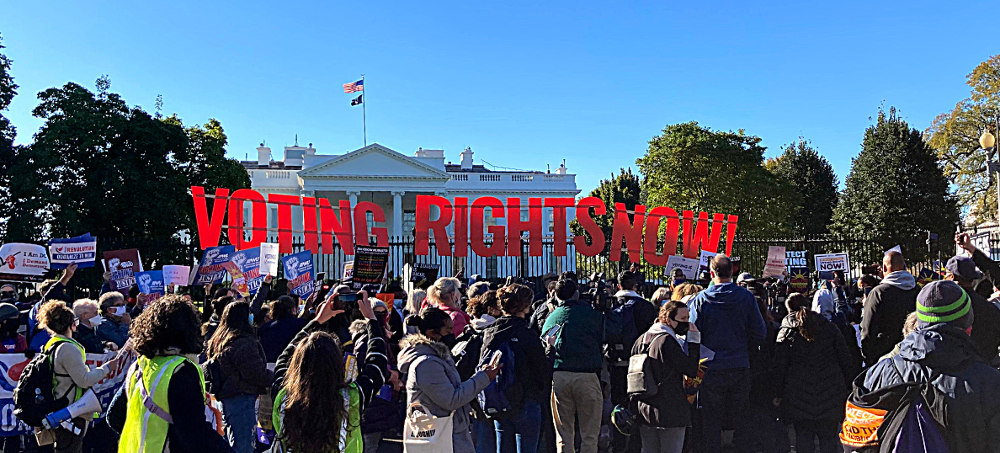 On November 3, voting rights activists escalated demands for the White House to act on voting rights. (photo: People for the American Way)
On November 3, voting rights activists escalated demands for the White House to act on voting rights. (photo: People for the American Way)
Republicans may retake control of the House next year thanks largely to extreme gerrymandering by Republican state legislators, even as Republican opposition in Congress has impeded critical legislation to combat discriminatory voting practices and eliminate barriers to the ballot. As pressure grows for Democrats to pass two key voting rights bills, activists are holding the last in a series of protests at the White House, where nearly 100 have been arrested since August, including Rev. Martin Luther King, Jr’s 13-year-old granddaughter Yolanda King. “States are suppressing the vote across the South, across the Midwest, even out in the far West, and there’s only one way to stop it,” says Ben Jealous, president of People for the American Way and former president of the NAACP. “Congress has to pass urgently needed federal voting rights bills now.”
JUAN GONZÁLEZ: Hi, Amy. Welcome to all of our listeners and viewers across the country and around the world.
AMY GOODMAN: We begin today’s show looking at how Republicans could retake the House next year thanks to extreme gerrymandering by Republican state lawmakers that could shape politics for the next decade. This comes as critical legislation to protect voting rights is languishing at the federal level. Today, voting rights groups are holding the last in a series of protests at the White House where nearly 100 people have been arrested since August. Now 100 more are risking arrest to call on Democrats to push through two key bills. Among those detained at a November 3rd protest, the same day Republican senators blocked the John Lewis Voting Rights Advancement Act, was the Reverend Martin Luther King, Jr.’s 13-year-old granddaughter Yolanda King. It was her first act of civil disobedience.
YOLANDA KING: I march because I want change, not just for me but for everyone who comes next. My grandma said every generation has to earn their freedom. I believe our generation can free the generations yet to be born. Adults have failed us so we need to take matters into our own hands. Finally, I march because I know activism works. I have seen it in my own family. When President Reagan refused to pass the King Bill to make MLK Day an official holiday, my grandma met with many political leaders to tell them why it was so important. People marched, demonstrated and used their voices, and eventually, Reagan signed the bill. This is what we’re going to do today to protect the right to vote! As a 13-year-old and an activist, here’s my question to elected officials: why are you in office? Are you here for power or are you here to stop silent [sp] or are you here to use your platform for good? If you are here for good, it is time to stop silencing our voices. We need critical bills passed, the Freedom to Vote Act and the John Lewis Voting Rights Advancement Act. These bills cannot wait!
AMY GOODMAN: That is 13-year-old activist Yolanda King, the only granddaughter of Reverend Dr. Martin Luther King, Jr. speaking at a protest outside the White House earlier this month. For more on today’s protest and the urgent calls for Democrats to “fix or nix the filibuster” and pass federal voting rights legislation, we are joined in Washington, D.C., by Ben Jealous, president of People for the American Way, former president of the NAACP.
And we are joined by Ari Berman, senior reporter for Mother Jones, where his latest piece is headlined Republicans Are Erasing Decades of Voting Rights Gains Before Our Eyes. Ari is the author of Give Us the Ballot: The Modern Struggle for Voting Rights in America. We welcome you both back to Democracy Now! Ben, let’s begin with you. Thank you for joining us right before you go to the White House again today, another plan for civil disobedience. Talk about why you have repeatedly been arrested.
BEN JEALOUS: We are in a moment in this country when states are suppressing the vote across the South, across the Midwest, even out in the far West. There’s really only one way to stop it, which is that the Senate, the Congress has to pass urgently needed federal voting rights bills now, the John Lewis bill and the Freedom to Vote Act, which was authored in part by Joe Manchin himself. We have the 51 votes. Vice President Kamala Harris has done her job in getting that consensus as president of the Senate. Now we need President Joe Biden to do his job and to call on the Senate to create a path for an up or down vote on these bills, so we can stop this voter suppression now.
JUAN GONZÁLEZ: Ben, how do you see the parallels between what the activists are doing today pressuring President Biden and what happened really a generation ago in the efforts to pressure LBJ around voting rights back then? And even something you’re more directly familiar with, the movement to pressure the Reagan administration over apartheid and U.S. complicity with the apartheid government of South Africa?
BEN JEALOUS: Martin Luther King III told a story at the last protest of his father, Martin Luther King Jr., meeting with President Johnson when the 1964 Civil Rights Act was passed. Martin Luther King said to President Johnson, “It is time for us to now pass the Voting Rights Act.” President Johnson said, “There’s just no way.” Martin Luther King said to his lieutenants as he walked out of the meeting, “We are just going to have to make them do it.” That is where we are right now. We know President Biden understands the importance of stopping these bills, but what we haven’t seen is him actually call on the Senate to get the job done. President Trump called on the Senate to create a carveout in the filibuster to pack the Supreme Court with far right-wing justices. Joe Biden can certainly do that to save our democracy. When you go back to Reagan and the anti-apartheid protests, Joe Madison who was one of the leaders of those, who is a Sirius XM radio host, is now on a hunger strike, again calling on Joe Biden to simply stand up and call on the Senate to create a path for an up or down vote on these bills. We believe that majorities matter and if they do, then they should matter in the U.S. Senate. We have the votes. The bills should be passed.
JUAN GONZÁLEZ: In terms of the efforts by Republicans in state after state to turn back the voting rights of people across the country, your concern of the most flagrant examples of this and what it will mean for the elections coming next year and then the presidential elections a couple of years down the road?
BEN JEALOUS: In general, these bills are meant to make it harder for people to vote. The most extreme thing we’ve seen is actually state legislatures give themselves the power to ultimately overturn entire statewide elections and impose their will on the people of their own state. It is the most anti-democratic thing that I have ever seen. What troubles me—my grandmother turned 105 this week. Her grandfather was born into slavery and he was one of the last Blacks to serve in Virginia during Reconstruction in the state legislature. My grandmother carries the pain that her grandfather had of watching his colleagues vote to suppress his constituents to ensure that men like him could never serve in office again. In all of my fighting against incursions on voting rights in our country, what I have never experienced before this year is colleagues calling me and saying, “I may not run statewide because I am worried that my state’s legislature will overturn the election if they don’t like the results.” That is something that has simply never happened in the history of U.S. democracy before, and it should be troubling all of us. That is why these bills have to be passed.
AMY GOODMAN: Describe what happens when you go outside the White House, and talk about why you are going there.
BEN JEALOUS: What we have seen is that these protests keep growing. The first time no one got arrested. The second time it was five people. The third time it was 25 people. The last time it was 62 people. Today we have over 150 that have signed up and we are expecting buses more coming in from places like Detroit and Georgia and we expect that many people coming off those buses will want to get arrested, too. What people understand is that our democracy is been harmed in a profound way.
If these bills are not passed by Christmas, then redistricting next year will be done in a way that will be incredibly undemocratic, incredibly partisan, incredibly gerrymandered. This is our last chance to really, quite frankly, get to a place that for the next decade we will actually have districts that reflect the people of the state and not the ambitions of the politicians who run those states now.
AMY GOODMAN: We should comment that we are running video of the protest. Joe Madison, the well-known talk show host, is on hunger fast right now around these issues, around these bills.
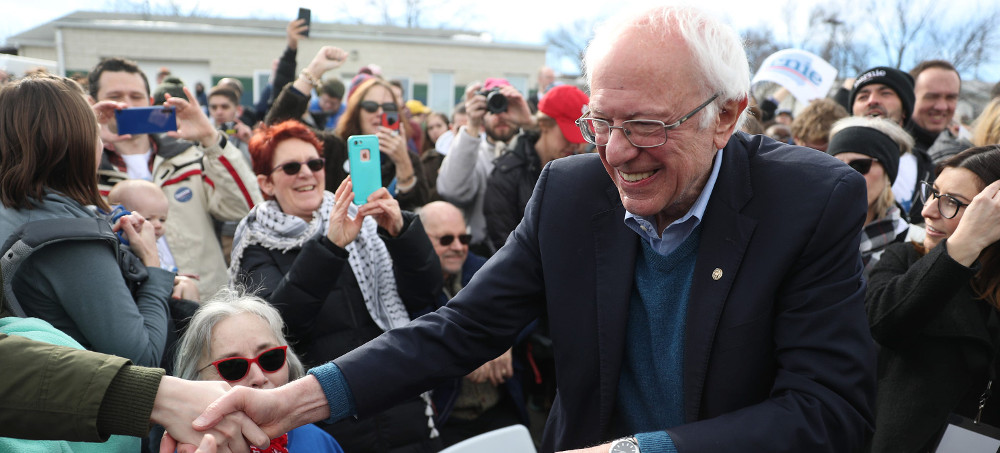 Sen. Bernie Sanders. (photo: Getty)
Sen. Bernie Sanders. (photo: Getty)
"The Senate has spent month after month discussing the Build Back Better Act and whether we can afford to protect the children, the elderly, the sick, the poor and the future of our planet. As a nation, we need to get our priorities right. I will vote ‘NO’ on the National Defense Authorization Act," Sanders said in a statement.
He also criticized a plan by Schumer to include the competitiveness legislation, which passed the Senate earlier this year but stalled in the House, into the defense bill, which sets broad spending and guidelines for the Pentagon.
“It is likely that the Senate leadership will attach to the National Defense Authorization Act the so-called ‘competitiveness bill,’ which includes $52 billion in corporate welfare, with no strings attached, for a handful of extremely profitable microchip companies," Sanders said in a statement.
"This bill also contains a $10 billion handout to Jeff Bezos for space exploration," he added.
Schumer told reporters earlier Tuesday that he will include the competitiveness legislation in the Senate's defense bill, once it is formally brought up for debate. Without a deal to speed things up, that could happen as early as Thursday.
But Sanders voted against the competitiveness legislation earlier this year, railing, at the time, against semiconductor funding and money that would go toward a company owned by Bezos.
Sanders is also a perennial "no" vote on the defense policy bill, which passes every year with a wide bipartisan margin. That means Democrats aren't expected to need Sanders's vote to pass it this year. Once the bill passes the Senate, they still need to work out a final deal with the House and pass it.
Sanders, in his statement, questioned why senators who are willing to approve the massive defense budget are also questioning the ability to afford expanding Medicare, providing paid leave and going bigger on combating climate change as part of Biden's Build Back Better agenda.
Republicans are all opposed to the climate and social spending bill, and Sen. Joe Manchin (D-W.Va.) has emerged as a roadblock for Democrats on all three of the areas highlighted by Sanders.
"Isn’t it strange how even as we end the longest war in our nation’s history concerns about the deficit and national debt seem to melt away under the influence of the powerful Military Industrial Complex?" Sanders said.
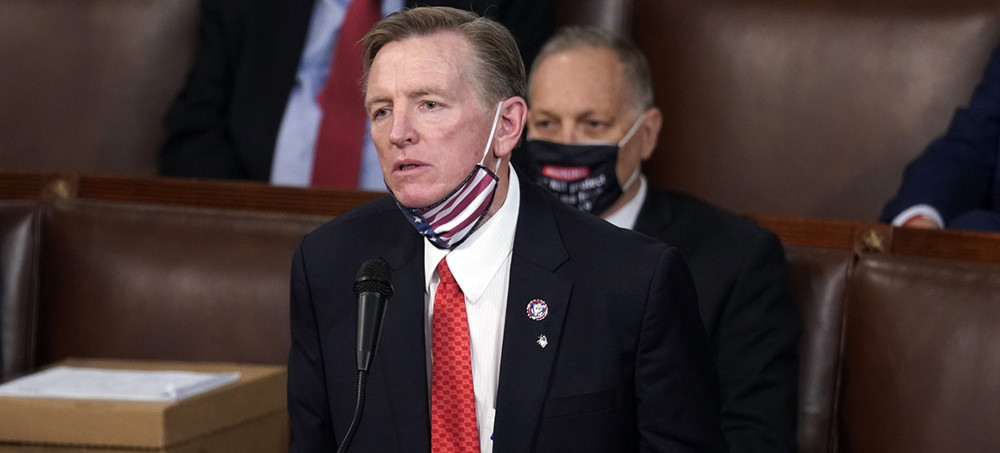 Rep. Paul Gosar speaks on Capitol Hill. (photo: Andrew Harnik/AP)
Rep. Paul Gosar speaks on Capitol Hill. (photo: Andrew Harnik/AP)
Gosar last week posted on Twitter an edited anime video that depicted him attacking President Biden and apparently killing Congresswoman Alexandria Ocasio-Cortez. He later deleted the tweet and issued a statement saying he doesn't condone violence.
House Speaker Nancy Pelosi said Tuesday that the disciplinary plan was necessary because Gosar made threats about harming a member of Congress.
"That is in itself not only an endangerment of that member of congress but an insult to the House of Representatives," Pelosi said.
Gosar serves on the House Oversight and Reform Committee with Ocasio-Cortez. The resolution would remove him from that committee and the House Committee on Natural Resources. Congressional committees are where the language of bills are hashed out — and they can give lawmakers the power to shape laws and influence policy.
Ocasio-Cortez said on Tuesday that Gosar would be expelled from Congress "in a perfect world," but that she supports censuring him and removing him from the Oversight and Reform Committee. She also questioned the sincerity of Gosar's statement on the video, which claimed the video is merely "a symbolic cartoon" that "depicts the symbolic nature of a battle between lawful and unlawful policies and in no way intended to be a targeted attack" against her and Mr. Biden.
"If he was telling the truth, he would have apologized by now. It's been well over a week," Ocasio-Cortez said. "He not only has not made any sort of contact or outreach—neither he nor Republican Leader [Kevin] McCarthy—but he has also doubled down."
A group of House Democrats led by Congresswoman Jackie Speier introduced a resolution last week to censure Gosar. So far, most Republican members have been silent on the measure against Gosar. But at least two, Representatives Liz Cheney and Congressman Adam Kinzinger, have signaled that they would support the measure against Gosar.
If Gosar is censured, he will have to stand in the well of the House chamber while the speaker reads the resolution and issues a verbal rebuke.
In February, 11 Republicans joined Democrats on a vote that stripped Congresswoman Marjorie Taylor Greene of her committee assignments for making extremist and racist comments before being elected. At the time, McCarthy warned that Democrats were opening the door to Republicans taking away Democrats' committee assignments when the majorities are flipped.
At a Rules Committee hearing on the resolution Tuesday evening, Congressman Tom Cole, the panel's ranking Republican, gave a similar warning.
"In future years, this precedent may be used to give the majority veto power over the minority's committee assignments. That's a dangerous dark road for the institution to go down," Cole said.
Despite that risk, Pelosi, who has the power to bring the resolution to the floor, said inaction is not an option after Gosar's actions.
"We cannot have members joking about murdering each other as well as threatening the President of the United States," Pelosi said.
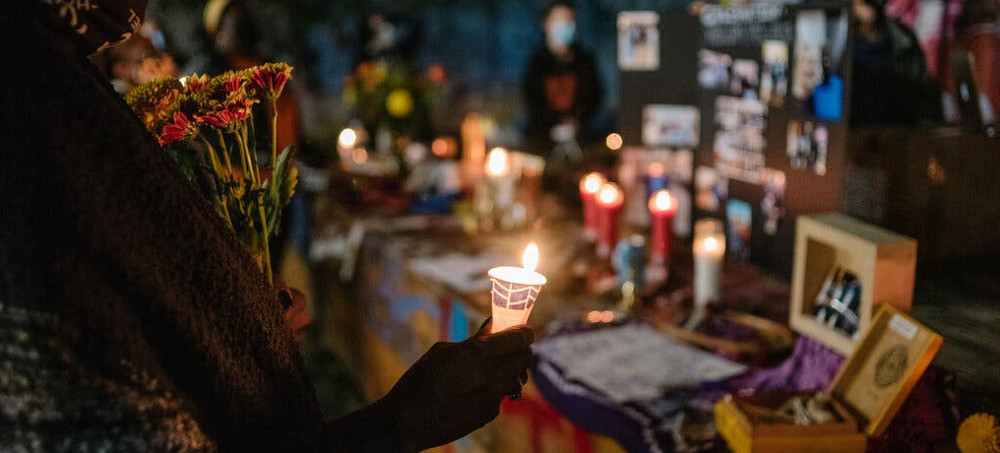 A memorial service in Baltimore last year for a man who died of an overdose. Overdose deaths have more than doubled since 2015. (photo: Andrew Mangunm/The New York Times)
A memorial service in Baltimore last year for a man who died of an overdose. Overdose deaths have more than doubled since 2015. (photo: Andrew Mangunm/The New York Times)
"To all those families who have mourned a loved one and to all those people who are facing addiction or are in recovery: you are in our hearts," said President Joe Biden in a statement issued by the White House. "Together, we will turn the tide on this epidemic."
"This tragic milestone represents an increase of 28.5%" over the same period just a year earlier, said Dr. Deb Houry with the CDC in a call with reporters Wednesday.
Dr. Rahul Gupta, who heads the White House Office of National Drug Control Policy, called the surge in drug fatalities "unacceptable."
"An overdose is a cry for help," Gupta said during the press conference. "For far too many people that cry goes unanswered. This requires a whole lot of government response and evidence-based strategies."
Experts blame the continuing surge on the spread of more dangerous street drugs and on disruptions to drug treatment programs caused by the pandemic.
"[Overdoses] are driven both by fentanyl and also by methamphetamines," said Dr. Nora Volkov, who heads the National Institute On Drug Abuse, part of the National Institutes of Health.
She predicted the surge of fatalities would continue because of the spread of more dangerous street drugs.
"They are among the most addictive drugs that we know of and the most lethal," Volkov said.
In recent years, Mexican drug cartels have pivoted to manufacturing and distributing fentanyl and methamphetamines, which are cheaper to produce and can be shipped in small quantities that are difficult to detect.
Anne Milgram, head of the Drug Enforcement Administration, acknowledged Wednesday that efforts to slow trafficking of these drugs haven't worked.
"This year alone DEA has seized enough fentanyl to provide every member of the U.S. population with a lethal dose," Milgram said. "We are still seizing more fentanyl each and every day."
The Biden administration is calling on Congress to approve more than $10 billion in funding for drug treatment and interdiction programs. The White House also asked states to relax rules that complicate access to Naloxone, a medication that can reverse overdoses caused by fentanyl and other opioids.
But the Biden administration has sent mixed signals on how committed it is to following science-based "harm reduction" strategies proven to help keep people with addiction alive.
In an interview last month with NPR, Health and Human Services Secretary Xavier Becerra initially signaled that the federal government would drop opposition to safe drug injection and consumption sites.
"We're not going to say 'but you can't do these other type of supervised consumption programs that you think work or that evidence shows work,'" Becerra said.
But HHS officials quickly walked back that statement and say the question of whether people with substance use disorder should be allowed to use drugs under medical supervision will be decided by the courts.
The DEA has also drawn fire in recent weeks for taking a tough stance with pharmacies that distribute buprenorphine, another medication with a strong track record of helping people with addiction avoid relapse and overdose.
 The military takeover sparked a chorus of international condemnation, including punitive aid cuts, with world powers demanding a swift return to civilian rule (photo: AFP)
The military takeover sparked a chorus of international condemnation, including punitive aid cuts, with world powers demanding a swift return to civilian rule (photo: AFP)
Doctors group says security forces shoot dead 10 people as thousands protest against the military takeover in Sudan.
Protesters marched in neighbourhoods across the capital, Khartoum, and its twin cities of Bahri and Omdurman on Wednesday as security forces fired live bullets and tear gas after mobile phone communications were cut earlier in the day.
The Central Committee of Sudanese Doctors (CCSD), an independent union of medics, said 10 people were killed by security forces.
“The coup forces used live bullets heavily in different areas of the capital and there are tens of gunshot injuries, some of them in serious condition,” it said in a statement.
It said two of the deaths were in Khartoum, seven were in Bahri and one was in Omdurman.
There was no immediate comment from security forces.
Demands for civilian rule
The demonstrators took to the streets in defiance of a deadly crackdown by security forces that has killed dozens of people since the military seized power last month. The protesters are demanding a full handover to civilian rule and for the coup leaders to be tried in court.
Sudan’s top general Abdel Fattah al-Burhan declared a state of emergency on October 25, dissolved the government and detained the civilian leadership.
Last week, al-Burhan appointed a new governing Sovereign Council, replacing the country’s transitional government, which comprised of civilian and military figures.
It was formed in 2019 as part of a power-sharing agreement between members of the army and civilians with the task of overseeing Sudan’s transition to democracy after a popular uprising led to the removal of longtime ruler Omar al-Bashir.
Some protesters on Wednesday carried pictures of people killed in previous protests and of Abdalla Hamdok, the civilian prime minister who was placed under house arrest during the coup, with the slogan: “Legitimacy comes from the street, not from the cannons.”
Images of protests in towns and cities including Port Sudan, Kassala, Dongola, Wad Madani and Geneina were posted on social media.
Al Jazeera’s Hiba Morgan, reporting from Khartoum, said some protesters were demanding that the army not take up any role in politics.
“Many of them are still demanding a return to civilian rule,” she said, speaking from Khartoum. “They say they want to return to a democratic process that was under way before the army took over in late October.”
The renewed protests came as US Secretary of State Antony Blinken urged Africans to watch out for rising threats to democracy as he began a three-nation tour of the continent in Kenya.
“We have seen over the last decade or so what some call a democratic recession,” Blinken said in Nairobi.
The United States has suspended some $700m in assistance to Sudan in response to the coup.
International condemnation
The death toll from Sudan’s anti-coup protests at the weekend rose to eight, medics said, bringing the total number of those killed since last month’s military takeover to at least 24.
Three teenagers were among those who lost their lives during the latest mass protests on Saturday, which were met with the deadliest crackdown since the October 25 coup.
The CCSD named all eight protesters killed, including 13-year-old Remaaz Hatim al-Atta, who was shot in the head in front of her family’s home in Khartoum, and Omar Adam who was shot in his neck during protests in the capital city.
The military takeover sparked a chorus of international condemnation, including punitive aid cuts, with world powers demanding a swift return to civilian rule.
Demonstrators have rallied since, despite internet outages and disruptions of communication lines, which forced activists to disseminate calls for protests via graffiti and SMS messages.
Since last month’s coup, more than 100 government officials and political leaders, along with a large number of demonstrators and activists, have been arrested.
Pro-democracy groups have promised to continue protesting until the return of the Sovereign Council.
In an interview with Al Jazeera earlier this month, al-Burhan said he was committed to handing over power to a civilian government, promising not to participate in any government that comes after the transitional period. But last week he announced the formation of a new Sovereign Council and appointed himself as its head.
 Irma Galindo Barrios was last seen on October 27. Indigenous communities in Mexico are demanding her safe return. Courtesy of family lawyer. (photo: @ajplusespanol/Twitter)
Irma Galindo Barrios was last seen on October 27. Indigenous communities in Mexico are demanding her safe return. Courtesy of family lawyer. (photo: @ajplusespanol/Twitter)
Irma Galindo Barrios has been working to protect forests in the Mexican state of Oaxaca from illegal logging. She was last seen on October 27, and Indigenous communities in Mexico are demanding her safe return.
"Please sign the petition to pressure Andrés Manuel López Obrador, Presidente De Mexico and Alejandro Murat Hinojosa Governor of Oaxaca, as well as appointed officials of influential departments to help find Irma Galindo Barrios and return her to her family," her supporters wrote on Change.org.
Illegal logging is an ongoing problem in Oaxaca, The Guardian explained. The deforestation threatens the income and food sources of local communities, who rely on pine forests for sustainable woodcutting and mushroom foraging. Galindo, who is a member of the Indigenous Mixtec people, has fought the logging since at least 2018, when loggers moved into three communities in her municipality of San Sebastián Atatlahuca with the alleged support of the local government
Her activism won her enemies, and neighbors burned down her home, forcing her to flee briefly into the forest. In 2019, she filed a complaint against the illegal logging with local authorities, but the police did nothing in response, according to the petition.
"The issue in Oaxaca is there is enormous complicity between groups with political power, who sometimes control an area, and people are supposed to benefit from these natural resources," Oaxaca human rights lawyer Maurilio Santiago Reyes told The Guardian. "Nobody ever responded to the complaints that were made."
Galindo's disappearance follows another wave of violence from October 21 to 23, directed against the same three communities facing deforestation. In the attacks, two people were killed, four disappeared and 90 homes were burned.
The day Galindo disappeared, she attempted to deliver a petition to President Obrador in Mexico City, but was refused. She was then supposed to attend a virtual meeting to join a state program for protecting journalists and defenders, but never showed up.
The violence faced by Galindo and her community is not an isolated incident in Mexico. The country was the second deadliest for environmental defenders in 2020, according to the annual report from Global Witness. The country lost 30 defenders to violence in 2020, and nine of them over conflicts related to illegal logging, a "large rise" from the year before.
Galindo described the situation in a Facebook post shortly before her disappearance, as The Guardian reported.
"There aren't any government officials who will go and see how we live … They only send in money that is used to buy weapons that are used to kill us. If there are organizations or groups that want to help us, they end up being criminalized, threatened and harassed," Galindo wrote. "Where does this end? What follows?"
Follow us on facebook and twitter!
PO Box 2043 / Citrus Heights, CA 95611

